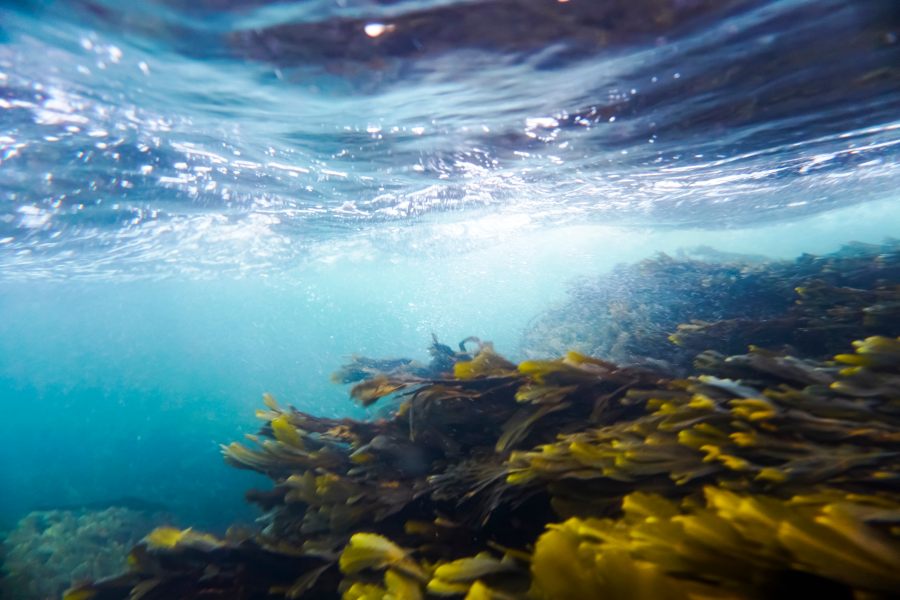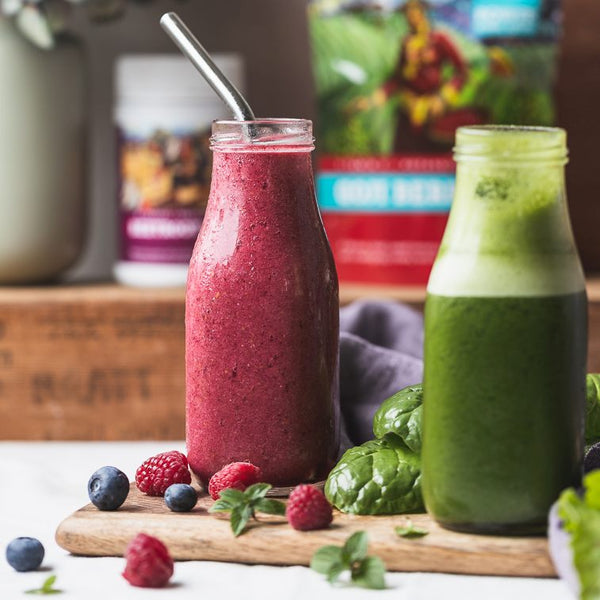Your Cart is Empty
NEW! Drinking Chocolates + 40% off Elderberry 120g!!! + FREE SHIPPING OVER $60
NEW! Drinking Chocolates + 40% off Elderberry 120g!!! + FREE SHIPPING OVER $60
Add description, images, menus and links to your mega menu
A column with no settings can be used as a spacer
Link to your collections, sales and even external links
Add up to five columns
Add description, images, menus and links to your mega menu
A column with no settings can be used as a spacer
Link to your collections, sales and even external links
Add up to five columns
Uncovering the Virtues of Seaweed
4 min read

Seaweed has been a central part of the diet for coastal populations the world over throughout human history. To this day it remains a valuable food source for many civilisations, most notably in South East Asia.
Seaweed is a readily-available food that enabled early humans to cross oceans and populate new lands, fertilise and cultivate land crops, and prepare medicines.
Despite a long history as a valuable component of many traditional diets, seaweeds have not yet permeated the standard Western diet to become the staple it has in other parts of the world. Apart from the odd sushi roll or seaweed rice cracker, most of us do not consume seaweed regularly.
Perhaps this should change. It has long been known that seaweeds are an excellent source of nutrition. Just as we are what we eat, seaweeds absorb nutrients from their aquatic environment. With each tidal ebb and flow, the plants are bathed in a rush of mineral-rich sea water. They are thus an excellent source of minerals and trace elements for us, containing up to 20 times the mineral content of most land vegetables.
These minerals include iron, magnesium, calcium, potassium, phosphorus, chromium, zinc and iodine – all present in a naturally-occurring, chelated form that tends to be well absorbed and utilised by the body.
Seaweeds are known to be one of the best sources of iodine – a mineral that is an essential building block of the thyroid hormone thyroxine. Thyroxine is essential for regulation of our basal metabolic rate, and impacts on almost every cell in our body.
Iodine levels in Australian soil are very low, which is in turn reflected in our food crops. In fact, Food Standards Australia New Zealand (the government body that regulates our food supply) have legislated for mandatory fortification of breads with iodised salt to reduce the incidence of iodine deficiency. Seaweeds can offer an excellent complementary or alternative source of bioavailable iodine to ensure an adequate intake.
Seaweeds have high amounts of vitamins A, B6, C, K and folate as well as being a very rare plant source of vitamin B12 – good news for vegans and vegetarians. They are also high in soluble dietary fibres that have been shown to slow the digestion of carbohydrates and fats, thus promoting satiety. These fibres also function as prebiotics in our gut.
A review of the nutritional profiles of a variety of edible seaweeds found relatively high protein levels in all species, ranging from around 20 per cent (equivalent to legumes) to as high as 50 per cent. They also found that most commonly consumed seaweeds contain the full complement of essential amino acids.
There is more to seaweeds than just their nutritional profile. Scientists are now starting to uncover some of the other benefits that bioactive compounds in seaweeds may hold for human health. Seaweeds, like all plants and algae, develop specific compounds to help them survive in their environment, whilst also acting as a natural defence against marine-borne pathogens.
Seaweeds can be broken down into three broad groups based on their colour pigments: red, brown and green.
Brown seaweeds, such as wakame (Alaria esculenta), are high in the colour pigment called fucoxanthin which has been shown to stimulate immunity. Fucoxanthin acts directly against certain viruses including herpes virus and influenza and may also regulate other immune functions that can lead to allergic responses.
The pigments found in red seaweeds such as dulse (Palmaria palmata) and nori (Porphyra umbilicalus) are the subject of ongoing research into potential antioxidant and anticarcinogenic activity. Red seaweeds are also high in taurine, an amino acid essential for healthy heart function. Taurine is not commonly found in plant sources – another tick for vegans and vegetarians.
Seaweed’s ability to absorb minerals from its environment means it is important to select seaweed that has grown in pure, clean waters. Power Super Foods certified organic seaweeds are sourced direct from the Canadian Maritimes region, where it is harvested from the icy clear waters by hand, and sun dried in the traditional manner on specially prepared rock beds.
Sounds great! So now, what to do with it?

Dulse has a unique umami flavour – the fifth flavour. It is savoury and not at all what one might expect of seaweed. It can be added to virtually anything: salads, soups, casseroles, dressings and sauces. The dry leaves can even be pan-fried into a bacon substitute. Pretty delicious!

Nori and Wakame have a more traditional seaweed flavour and pair nicely in Asian style cooking. Add them to miso or sriracha mayo, sprinkle over bibimbap bowls or toast or sprinkle over popcorn. They can also replace salt in any recipe.

All of our seaweed flakes can also be added to your smoothies and drinks for a tasty nutrient boost. Try including lemon, banana, chia seeds or complementary veggies and fruits. Here is our favourite seaweed smoothie recipe.

However you enjoy it, seaweed’s rich nutritional profile makes it well worth incorporating into your dishes. Ready to delve a little deeper with your healthy eating this year? Try seaweed.
Posted by The PSF Team - Thanks to Cate Lilja
Be a Super Foodie
Sign up to get super food recipes, offers, new releases and more …

Get 10% off your first order
Plus you'll be the first to hear about new products, exclusive offers, superfood recipes and more.
